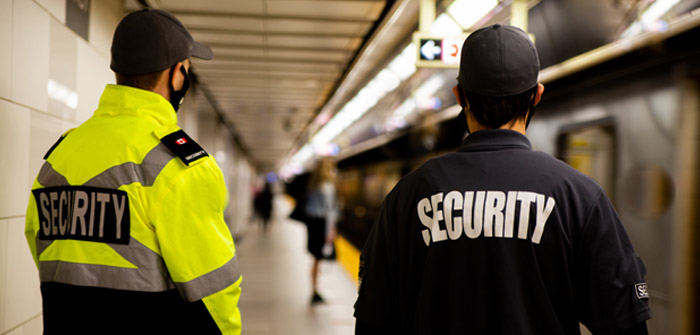Industries across the spectrum, from healthcare to finance to retail, face unique challenges regarding safeguarding their data and systems from cyber threats. As cybercriminals become increasingly sophisticated in their methods, organisations must stay ahead by implementing security measures tailored to their industry’s needs. This article will explore the importance of bespoke security solutions for diverse industries and how they can help safeguard against the growing threats in today’s digital world.
Industry-Specific Security Concerns and Solutions
Top priorities are protecting patient data and ensuring compliance with strict HIPAA regulations. Healthcare organisations must implement security solutions with the help of a door supervisor company that prevents data breaches and ensures the confidentiality and integrity of sensitive information. Solutions such as encryption technologies, multi-factor authentication, and regular security audits are essential for safeguarding patient records and maintaining trust within the industry.
The financial sector faces unique security concerns due to the high value of the data and assets. Financial institutions must combat sophisticated cyber threats such as ransomware attacks and phishing scams that aim to steal sensitive financial information. Tailored security solutions for the finance industry may include real-time monitoring of transactions, strong authentication protocols, and employee training to identify and report potential threats. Financial organisations can mitigate risks and protect their clients’ assets by implementing industry-specific security measures.
Protecting customer payment information and maintaining the integrity of online transactions are crucial for building trust and maintaining a positive reputation. Retailers must invest in solutions such as PCI compliance, secure payment gateways, and regular vulnerability assessments to prevent data breaches and ensure a seamless shopping experience for customers. By taking a proactive approach to cybersecurity and tailoring security solutions to the unique challenges of their industry, retail organisations can protect their brand, customer data, and bottom line.
The Role of Security in Event Management
Security is a crucial aspect of event management, especially for large public and private events where the safety of attendees is of utmost importance. Special considerations must be considered to ensure that potential risks are mitigated and all individuals can enjoy the event without fear or harm. This includes implementing security measures such as bag checks, metal detectors, surveillance cameras, and security personnel to handle potential potential threats.
Event organisers need to work closely with security professionals to tailor security solutions that are specific to the nature of the event and the potential risks that may be present. Each event will have its unique challenges and requirements, and it is important to address these proactively to prevent any security breaches or incidents from occurring. By taking a tailored approach to security, organisers can ensure that all attendees feel safe and secure throughout the event, creating a positive and enjoyable experience for everyone involved.
Security Protocols for High-Risk Areas
Special security protocols are implemented to mitigate potential threats and vulnerabilities in high-risk areas or industries, such as government facilities, financial institutions, or critical infrastructure. These protocols often include physical security measures, such as access control systems, surveillance cameras, and perimeter fencing, and cybersecurity measures, such as firewalls, encryption, and intrusion detection systems. Additionally, many high-risk areas may also employ security personnel, such as guards or security officers, to provide additional protection and response in an emergency.
In industries like healthcare or pharmaceuticals, where protecting sensitive patient information is paramount, security protocols may include data encryption, secure networks, and robust authentication procedures. In the retail sector, where credit card fraud and theft are common concerns, security protocols may focus on securing payment systems, implementing inventory controls, and training employees on security best practices. Ultimately, tailored security solutions are essential for high-risk areas and industries to protect assets, data, and personnel from potential threats and vulnerabilities.
Assessing the Adaptability of a Security Firm
When assessing the adaptability of a security firm, one of the key factors to consider is their level of industry knowledge and expertise. A security provider with experience working within your specific industry will better understand the unique challenges and risks you face. They can tailor their services to address these needs and protect your organisation.
Another important factor to consider when evaluating the adaptability of a security firm is their flexibility in customising their services to meet your specific requirements. A good security provider should be able to offer a range of security solutions that can be tailored to suit your organisation’s size, budget, and risk profile. They should be willing to work closely with you to identify your unique security needs and develop a customised security strategy that meets these requirements.
When looking for a security provider that can tailor their services to meet your needs, it is important to assess their industry knowledge, expertise and flexibility in customising their services. By working with a security firm that understands your industry and is willing to adapt its services to suit your requirements, you can ensure that your organisation is well-protected against the ever-evolving threats in the digital landscape.


